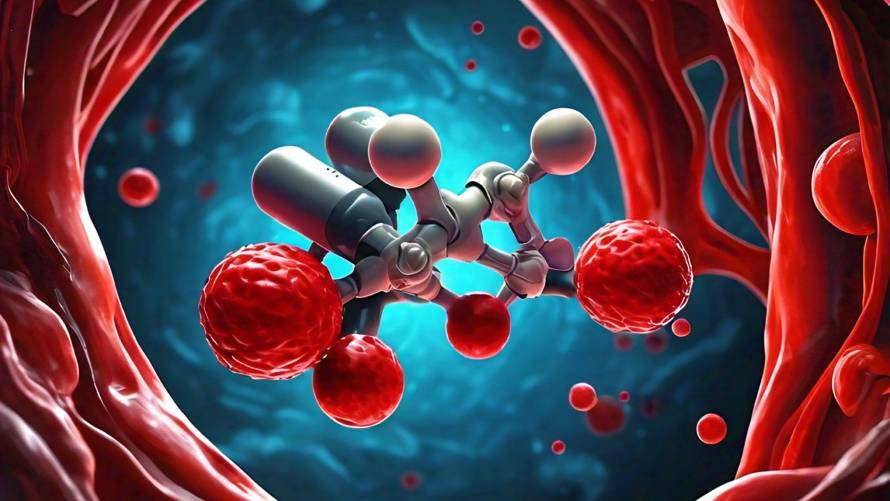New Drug Offers Reversible Activity and Rapid Deactivation
Researchers from the University of Geneva (UNIGE) and the University of Sydney have developed a groundbreaking anticoagulant that could transform the way we manage heart disease, stroke, and venous thrombosis. The new drug, described in a recent study published in Nature Biotechnology, features an on-demand reversible activity and a fast-acting “antidote” to quickly neutralize its effects when needed.
Current anticoagulant treatments, such as heparin and warfarin, come with significant drawbacks, including the need for regular blood coagulation monitoring and the risk of serious bleeding in case of overdose or trauma. In fact, complications with anticoagulant therapies account for approximately 15% of emergency hospital visits due to adverse drug effects in the United States.
“This breakthrough goes beyond the development of a new anticoagulant and its associated antidote. The supramolecular approach proposed is remarkably flexible and can be easily adapted to other therapeutic targets. It is particularly promising in the field of immunotherapy,” explains Nicolas Winssinger, professor in the Department of organic chemistry at the UNIGE Faculty of Science, who directed this research.
Innovative Design Targets Thrombin with Two-Molecule Combo
The new active ingredient consists of two molecules that target distinct sites of thrombin, a protein central to blood coagulation. After binding to thrombin, these molecules combine to inhibit its activity, reducing its coagulant effect. The antidote works by dissociating the two molecules, rapidly reversing the anticoagulant action.
One of the key innovations in this work is the use of peptide nucleic acid (PNA) to link the two thrombin-binding molecules. PNA strands can come together via relatively weak bonds that are easy to break. By introducing correctly designated strands of free PNA, the researchers showed that it is possible to dissociate the two thrombin-binding molecules, effectively deactivating the drug’s action.
This new anticoagulant could offer a more reliable and easier-to-use option for surgical procedures, potentially solving the problems of purity and availability associated with heparin, which is currently extracted from pig intestines and can have highly variable action.
Beyond anticoagulation, the supramolecular concept of activating and deactivating the active principle could have significant implications for immunotherapy, particularly CAR-T therapies. Although CAR-T therapies have been major advances in the treatment of certain cancers, they come with a risk of life-threatening immune system overreaction (cytokine storm). The ability to rapidly deactivate a treatment with an accessible antidote could represent a crucial advance in improving the safety and efficacy of these therapies.
Keyword/Phrase: Reversible Anticoagulant


